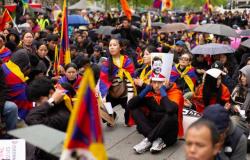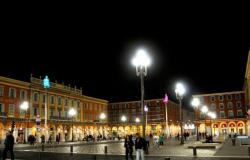It is a world premiere. Starting Thursday, April 25, day-trippers will need to present a ticket to enter Venice, in a move the city hopes will stem the tide of mass tourism. The new permit, in the form of a QR code purchased online for a one-time fee of 5 euros, must be presented at the main entry points to the Serenissima. Despite the low price and the fact that there is no upper limit on the number of visitors, Venice hopes to discourage some tourists from crowding its narrow streets and bridges crossing the canals on the busiest days, writes Le Figaro.
The City of the Doges will thus become the first tourist city in the world to impose an entrance fee, at a time when anti-tourism movements are multiplying, particularly in Spain, prompting authorities to take steps to reconcile the well-being of locals with a crucial economic sector. “This is an experiment, the first of its kind in the world,” explained the mayor of Venice, Luigi Brugnaro, at a press conference in Rome in early April.
A purely cosmetic measure?
“The calendar starts on April 25 (a public holiday in Italy, no), followed by almost every weekend from May to July,” explained Luigi Brugnaro, who promised “very gentle” checks, “random” and “no tails”. The experiment will be closely monitored by major tourist cities facing the same problems.
For Isabelle Kahna, founder of the agency Les Ailes de Venise, which promotes more sustainable travel, “there will certainly be no immediate impact on the number of daily tourists”. She points to a “facade measure” and recalls that “for years the Italian state has been accused of allowing irreversible changes to the city.” However, she admits that the measure “is helping to change the way people think about a trip to Venice”.
Numerous exemptions
We remind you that this tax, the implementation of which has been postponed several times, only applies to day tourists who enter the old city between 8.30 and 16.00. They will need to download their QR code from the dedicated website, which is available in English, Spanish, French and German as well as Italian. This precious pass will then need to be presented to the ticket inspectors stationed at the main entrances to the city, including Santa Lucia station. Tourists who have not completed this formality will be invited to purchase it at the last moment, upon arrival, with the help of local operators.
This will not cause problems, as no ceiling has been set for the number of QR codes sold each day: “We oppose the numerus clausus, otherwise we are no longer a city, but a museum,” the mayor of Venice emphasized. A fine of between €50 and €300 is planned for tourists who try to escape without paying the tax – although local authorities have said they will prefer persuasion to repression. Tourists who stay at least one night on site are not affected and will receive a free QR code.
There are a number of exemptions. People with disabilities, those accompanying a relative with disabilities, people under 14, students, participants in a sports event, etc. they will be exempt. And many others will be able to benefit from exemptions from this rule.
30 million visitors per year
Venice, world-renowned for its monuments, works of art, bridges and canals, has been a UNESCO World Heritage Site since 1987. In September 2023, the city narrowly escaped being included on the UNESCO World Heritage in Danger list. Experts believed that this jewel was under threat from over-tourism and global warming, due to the “insufficient” measures taken by Italy to combat the deterioration of the site.
At its peak, 100,000 tourists sleep here, in addition to the tens of thousands of daily visitors. By comparison, only about 50,000 people live in the city center, which is becoming increasingly depopulated. The City of the Doges receives an average of 30 million visitors each year, much to the displeasure of the Venetians. In response, a number of measures have already been put in place: loudspeakers have been banned. The same applies to groups of more than 25 people in the historic center and on the tourist islands of Murano, Burano and Torcello. Giant cruise ships have also been banned from downtown. It remains to be seen whether this new measure will reduce the influx of tourists.
Tags: Venices entry tax force Thursday tourists required pay
-





